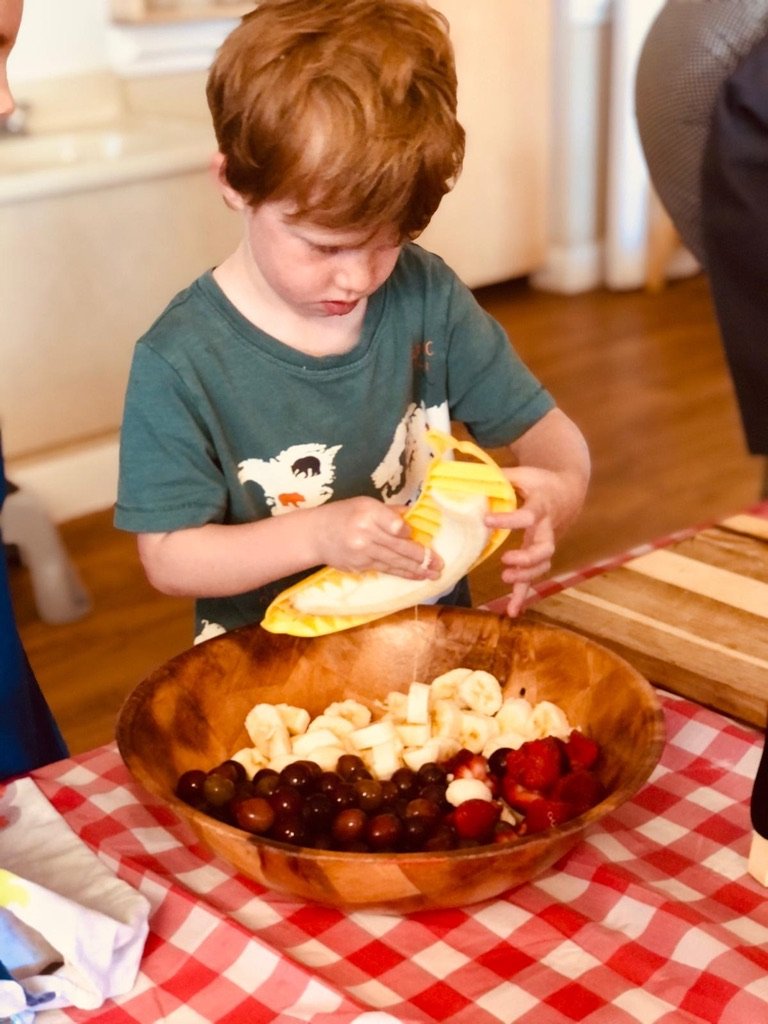
Nutrition
Dr. Maria Montessori
“We give the child nourishing food so that his little body may grow, and in just the same way we must provide him with suitable nourishment for his mental and moral growth.”
Parents and guardians send their children to school with daily lunches. The school provides snacks for the children consisting of fresh fruits or vegetables, whole wheat bread, crackers, granola, chips made from quinoa, corn, beans, or veggies, and protein-rich options like yogurt, cheese, or hummus. We prioritize healthy choices and aim to purchase non-GMO, organic, or natural foods whenever possible.
Food Preparation
Our Montessori Curriculum includes food preparation activities in each classroom, such as making orange juice or lemonade, brewing tea, cutting bread, bananas, and apples, cracking nuts, and baking and cooking activities. Our students learn to make a variety of recipes, some of which feature seasonal fruits, herbs, or vegetables grown in our school garden.
Whether using simple or complex equipment, children need items that they can learn to manage on their own. As such, we provide kitchen items that are sized appropriately. So children can master their movements and abilities, the kitchen tools must work for children and not cause unnecessary obstacles. Through plenty of repetition with food preparation and the varied kinds of tools involved, children begin to coordinate their movements and refine their skills.
Cultural Significance
Where we live in the world dictates how and what we eat. Food also plays a key role in rituals and customs, from people coming together socially to religious ceremonies to relying on food for medical purposes. All cultures have some kind of beliefs about both the significance of food and different foods’ ability to make our bodies feel better or worse.
With all of the cultural richness woven into food, bringing in family traditions, customs, favorite recipes, and rituals around food can enhance the classroom community’s experience and provide a culturally responsive school-family partnership.
Food preparation is an essential part of our learning communities and a significant part of our children’s development. Please schedule a time to visit the school, see this work for yourself, and perhaps even share a bit about your own culinary traditions!
Gardening
At Autana, we hold a deep conviction regarding the significance of educating children about the origins of food. To accomplish this, we collaborate with nearby farmers to pay them a visit and acquire fresh produce.
Additionally, we endeavor to cultivate some of the vegetables, herbs, and fruits that the children consume at school, and we involve them in every step of the process.



